|
|
|
Книги Paine Thomas

|
Rights of Man is a classic statement of the belief in humanity's potential to change the world for the better. Published as a reply to Burke's Reflections on the Revolution in France, it differs from that great work in every relevant respect. Where Burke uses the language of the governing classes, Paine writes with the vigour of a self-taught mast-maker and exciseman. With passionate and rapier wit, Paine challenges Burke's assertion that society cannot be judged by rational standards and found wanting. Rights of Man contains a fully-costed budget, advocating measures such as free education, old age pensions, welfare benefits and child allowance over 100 years before these things were introduced in Britain. It remains a compelling manifesto for social change. |

|
An army of principles will penetrate where an army of soldiers cannot... it will march on the horizon of the world and it will conquer. Thomas Paine was the first international revolutionary. His Common Sense (1776) was the most widely read pamphlet of the American Revolution; his Rights of Man (1791-2) was the most famous defence of the French Revolution and sent out a clarion call for revolution throughout the world. He paid the price for his principles: he was outlawed in Britain, narrowly escaped execution in France, and was villified as an atheist and a Jacobin on his return to America. Paine loathed the unnatural inequalities fostered by the hereditary and monarchical systems. He believed that government must be by and for the people and must limit itself to the protection of their natural rights. But he was not a libertarian: from a commitment to natural rights he generated one of the first blueprints for a welfare state, combining a liberal order of civil rights with egalitarian constraints. This collection brings together Paine's most powerful political writings from the American and French revolutions in the first fully annotated edition of these works. |
|